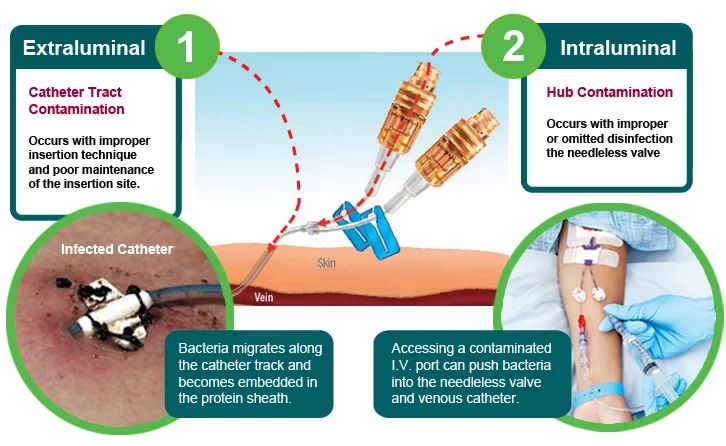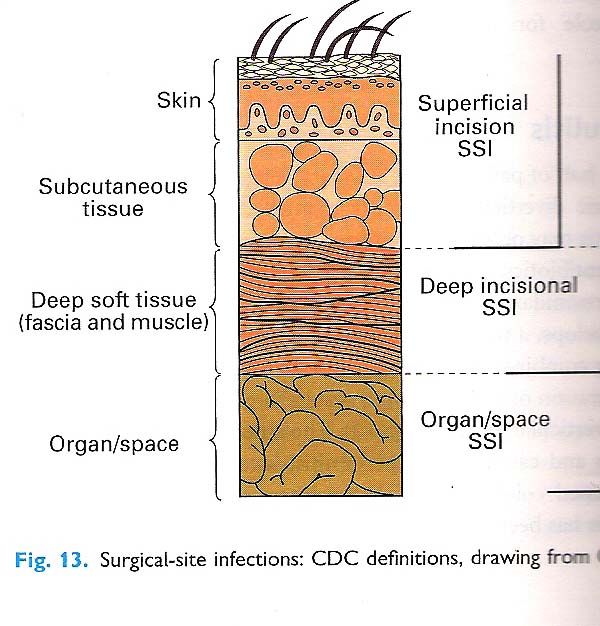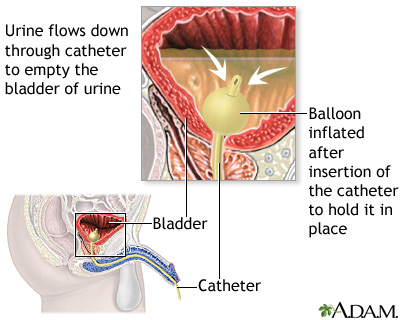Many people are afraid of hospitals. There are lots of reasons for this, but one of the most common reasons is the fear of acquiring someone else's sickness. After all, who would want to acquire something else in the process of getting checked up for something that can easily be solved by medicine for cough and cold.
Still, it is important to regularly visit the doctor and, if necessary, undergo certain procedures. For your own peace of mind and knowledge, we have listed down three infections you could possibly, but not likely, acquire in the hospital during your stay.
Central Line Bloodstream Infection (CLABSI)

One of the most important tools medicine has ever seen is the Central Line catheter. Without the central line catheter, essential lifesaving medicines could not be administered to the patients who desperately need them. It is implanted into the patient's femoral vein in the groin, subclavian vein or axillary vein in the chest or the internal jugular vein in the neck. This permits the doctor to give the patient the appropriate medicine. Unlike your usual peripheral venous catheter, the central line is for long term usage. It is often used by chemotherapy patients, dialysis patients and those who are in need of long term pain medications.
Unfortunately, this open passage way is the perfect road for bacteria which is why there were over 30,000 cases of Central Line Bloodstream Infection (CLABSI) in the United States Alone in 2011. The patient may experience high fever and chills while the area where the catheter was inserted may swell and redden. It can even lead to death. This can be prevented by having whoever is to handle the catheter thoroughly clean their hands as well as handling it with sterile gloves.
Surgical Site Infection (SSI)

Surgery is one of the most lifesaving procedures any medical professional can do to a person. You slice open the flesh, fix whatever is wrong inside and sew back together the tissue. It may sound very simple but operating on a live person takes concentration, patience, expertise and focus. It is no wonder doctors study for ten years before getting the much coveted title of "Doctor" attached to their names! Unfortunately, infection may still occur despite all the precautions taken. This is what is called a Surgical Site Infection.
For each incision the surgeon makes, he or she is actually giving bacteria and viruses a chance to enter the body's system leading to an infection. This is especially problematic for people who may have survived a surgery with a 50-50 chance of survival but develops SSI afterwards. As for the severity, it can be as slight as redness and swelling to as serious as sepsis. To minimize the risk of SSI, the institution must lessen the amount of people going in and out of the operating room. It is also helpful to give the patient antibiotics before the surgery to lessen the chances of infection.
Catheter Associated Urinary Tract Infection (UTI)

There are times when a patient will be unable to pee due to illness, surgical procedure or injury. When this occurs, a medical professional is called in to insert a catheter, a hollow rubber tube, through the urethra. Once inserted, the other end is attached to a drainage bag to collect the urine. Unfortunately, complications may occur, specifically something called Catheter Urinary Tract Infection (CAUTI). The catheter tube allows bacteria to access the urinary bladder, leading to an infection. It is the most common type of hospital acquired infection. Symptoms are cloudy urine, bloody urine, strong pungent urine smell, fever, vomiting and fatigue. If left unchecked, it can cause serious kidney problems. Treatment includes oral or intravenous antibiotics as well as drinking more water.
Trust your doctors to know what to do when an infection does occur. If you are feeling any discomfort, immediately call their attention so as to have the problem addressed immediately and to avoid any further complications.